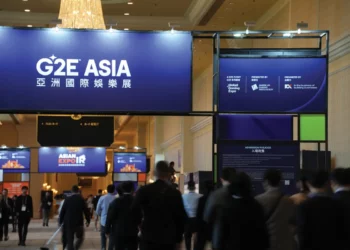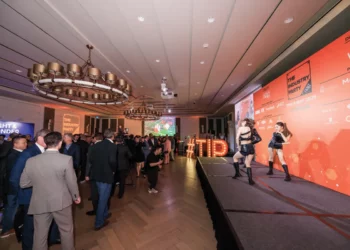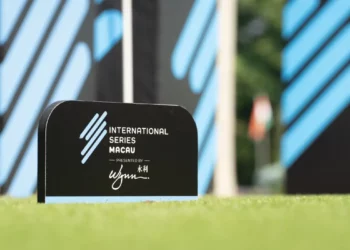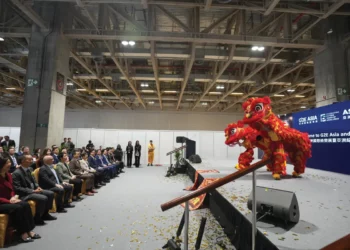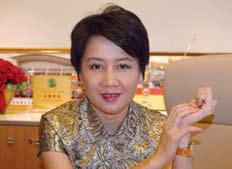 21 (26) Angela Leong On-Kei
21 (26) Angela Leong On-Kei
Director
Sociedade de Jogos de Macau (SJM)
What role, if any, will Ms Leong play in the running of SJM once her partner and the father of her children, Dr Stanley Ho, is no longer involved in the business? And will SJM even continue to exist in its current form? Those two questions are likely to become increasingly important in the coming months and years.
Given that it is domestic rather than blood ties that cement Ms Leong’s place in the SJM setup, there are some that remain sceptical she can maintain her position independent of Dr Ho’s involvement in the company.
It would probably be unwise to write her off for several reasons. Firstly, the children she has borne Dr Ho may form a kind of insurance policy working in her favour in a still dynastically-minded Chinese business culture. Secondly, while she may not have been born to be a gaming executive, having pursued a career as a professional dancer prior to setting up home with Dr Ho, she has grown into the role. She is reputed to be a tough and savvy deal maker.
Potentially working against the 49-yearold Ms Leong is that Dr Ho was already a septuagenarian when he started a family with her. As a result, the children of that relationship are not yet old enough to jockey for position with Pansy Ho and Lawrence Ho, two of Dr Ho’s older children who already have between them nearly ten years of casino construction and operations knowhow in Macau.
Another potential wild card to throw into the SJM succession game is Dr Ambrose So, Chief Executive of SJM and a long time lieutenant of Dr Ho. At a recent press event at Ponte 16, an SJM licensed property in Macau’s historic inner harbour district, it was Dr So and not Ms Leong that made an announcement about SJM’s plans for a resort on Cotai, Macau’s fast-growing mass market playground built on land reclaimed between the islands of Taipa and Coloane.
Whatever happens in the succession race, Ms Leong and her children are likely to be well provided for from Dr Ho’s reported US$2.1 billion fortune. That likely bequest, and the business and political contacts Ms Leong has made during her three years as a director of SJM, may be enough to enable her to form a Macau gaming dynasty in her own right. Such a role could possibly be as a minority shareholder in someone else’s project (she has been linked—though without any independent confirmation—to a recent anonymous share purchase on the stalled Macao Studio City project). Alternatively, SJM could seek to keep Ms Ho ‘onside’—to use the jargon of politics— by offering her some kind of role handling the relationship between SJM and its satellite properties (those licensed by SJM but not directly managed by the company). Or she might become an operator of an SJM satellite casino in her own right—either via a new build project, or via a stake or management role in an existing satellite.
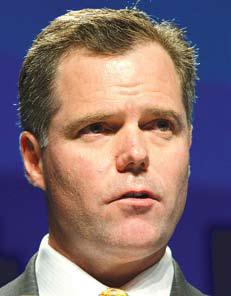 22 (17) Jim Murren
22 (17) Jim Murren
Chairman and CEO
MGM Resorts International
Mr Murren’s background as a Wall Street high flyer must have come in useful in the last 12 months when it came to the major job of restructuring MGM Resorts International’s global debt. That stood in November last year at US$13 billion. Mr Murren, a former Director of Research for Deutsche Bank, will have needed all his analytical and financial skills to solve that conundrum.
Most of his focus in the year since the previous Asian Gaming 50 has naturally been on the core operation in the United States. In particular, he needed to engineer the successful launch of the US$8.5 billion CityCenter in Las Vegas and to ensure its immediate and strong contribution to the company balance sheet. But the easing of the pressure on the company’s finances after successful moves to restructure and in some cases reschedule its global debt during 2009 and early 2010 has given MGM Resorts time to refocus on its 50:50 joint venture operation in Macau.
This has led to a number of changes, including a revamp on external image and general marketing. MGM Macau—opened in December 2007 at a cost of US$1.25 billion—is now a little less focused on the lion branding that means so much in the West, and a little heavier on lucky dragons for its predominantly Chinese customers. In addition, the renaming of the Macau operation from MGM Grand Macau to MGM Macau was in line with a global rebranding exercise undergone by the US parent. MGM MIRAGE formally announced that transformation to MGM Resorts International in June. Arguably, however—unlike its compatriots Las Vegas Sands Corp and Wynn Resorts—MGM Resorts showed that culturally and financially its focus is still on the United States rather than Asia, by choosing to make the main announcement in Las Vegas rather than Macau.
In Macau, Mr Murren has, however, reportedly been party to other changes including a decision during the summer to step up cooperation with Macau’s junket operators. Macau junket operators are a group associated—particularly in the minds of some law enforcement people in the United States—with the ‘old’ Macau of Dr Stanley Ho’s monopoly years. As is often the case, popular perception tends to lag behind reality. Most companies associated with the modern junket trade in Macau now operate more like banks rather than backstreet moneylenders. Their client accounts are managed via computers and spreadsheets—and some junket related businesses are even public companies listed in Hong Kong.
Mr Murren will have understood that cosying up further to Macau junkets will have carried some political risk in the company’s home market. An example is the hostile reception given by the New Jersey Division of Gaming Enforcement to the company’s partner in Macau, Pansy Ho, daughter of Dr Ho. The risk to the Macau operation of not courting more junket business was even greater. At one stage, part way through August, some analysts were muttering MGM Macau had hit an all time low share of Macau gross gaming revenue of only 6%.
With at least one new deal signed recently with a junket investment company to provide extra high rollers, MGM Macau could at long last start to fulfil its promise after a lacklustre two and a half years. If it can tie those new VIP customers into MGM’s famously efficient and well designed rewards and loyalty system, then the next 12 months could see Mr Murren’s smile broaden even further.
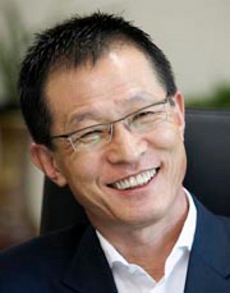 23 (23) Choi Young
23 (23) Choi Young
CEO and President
Kangwong Land, Inc
Kangwon Land, South Korea’s only casino open to locals, is planning a major expansion of its gaming facilities, to be completed by March 2012. But in a graphic illustration of the delicate job that CEO Choi Young has and the political sensitivity surrounding the growth of the domestic casino market, the government has indicated Kangwon Land will only be allowed to apply for more gaming tables after building work is completed.
Although Kangwon Land is a state enterprise and must abide by the government’s wishes, it could certainly use more tables. Locals inform Inside Asian Gaming that the casino is so popular among South Koreans that hard-up pensioners with time on their hands arrive early at Kangwon Land to occupy seats at the crowded tables, and then charge eager gamblers arriving later up to US$700 for those seats on the weekend.
The first quarter of 2010 produced the casino’s best ever result, with gross gaming revenue equivalent to US$282 million. Still, crowding and a six-year-long freeze on the number of gaming tables permitted at the property are causing revenue growth to plateau. In the second quarter of 2010, gaming revenue slipped back to US$260 million—an 8.3% increase from Q2 2009, but only 3% up on Q4 2009.
Kangwon Land was originally conceived as a government initiative to rejuvenate Kangwon Province—a former coal production centre which became impoverished after the mines shut. The casino opened in March 2003 with 30 tables. Following 18 months of steady capacity expansion, the National Gaming Control Commission imposed a cap of 132 tables in November 2004 in line with government orders to limit the casino industry’s income.
Kangwon Land’s casino currently covers nearly 300,000 square feet and also offers 960 video slots that are upgraded regularly via a rolling acquisition programme. There has been much speculation over the past few years that the cap would be lifted, but that has yet to happen.
South Korean finance house Hyundai Securities welcomes the prospect of an end to the moratorium on additional tables. “Casino expansion is expected to be completed in March 2012. This is positive since: 1) enhancement in gaming environment will likely help attract more visitors; and 2) if table additions, which have been delayed for more than seven years, are carried out, it will immediately generate more sales,” said Hyundai Securities in a research report on Kangwon Land published in late July.
Mr Choi told the Joong Ang Daily newspaper in May that a total of KRW1.39 trillion would be spent by 2012 on the overhaul of Kangwon Land, which also has a hotel, a golf course, a ski slope, condominiums and a theme park. The resort attracted 4.3 million visitors and generated KRW1.2 trillion (US$1 billion) in gross revenue last year.
The infrastructure investments will boost the number of annual visitors to the resort to 7 million by 2012, Mr Choi said. The renovation includes construction of a 500- room condominium and a 22-storey hotel with a convention centre.
Mr Choi previously served as President of South Korea’s SH Corporation, a clothing and footwear manufacturer, and has also worked for the Seoul Metropolitan Government. He holds a Master’s degree in Urban Administration from the University of Southern California in the US.
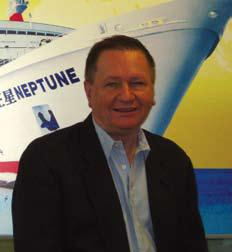 24 (44) Nick Niglio
24 (44) Nick Niglio
Executive Director and COO
Neptune Group Ltd
As Executive Director and Chief Operating Officer of Neptune Group Ltd since 2007, Nick Niglio has played a major role in the rapid growth of Macau VIP baccarat, and his own company’s rising market share in that sector.
The group currently coordinates the promotion of 152 VIP tables in seven Macau casinos. This month, the company is due to add significant extra capacity at one of those venues in a new luxury facility for top level high rollers. That will push its total table inventory up to 172 tables.
Considered now to be the biggest junket in the world, a big factor in Neptune’s rise appears to be the company’s success at making friends. Neptune isn’t necessarily the most aggressive at making commission deals with casinos. But it does seem to have considerable goodwill in the local industry and among players for fair and friendly dealing. That counts for a huge amount in the VIP sector and also ultimately pays off in terms of the bottom line.
“It’s truly a relationships business,” he says. Mr Niglio brings extensive experience from the US gaming sector to Macau, including a stint as Executive Vice President for Caesars World Marketing and Executive Vice President of Trump Taj Mahal Casino Resort in Atlantic City, New Jersey. In Macau and Hong Kong, Mr Niglio served as a gaming consultant for several large international concerns seeking to position themselves in Asian gaming markets.
Neptune Group is probably best known to the general public in the region as operator of the casino cruise ship HMV Neptune. The company acquired the vessel in June 2005 for HK$68 million (US$8.7 million). It sails out of Hong Kong to international waters daily, with special promotional events at least once a month.
Neptune Group is a Hong Kong-listed conglomerate with a range of business interests.
In today’s market conditions, some investors seem to be happy to inject capital directly into this business. The junket sector’s short credit cycles and attractive interest accruing on working capital (because of the gambling credit system) means Macau junkets are becoming a more appealing option for cash-rich local investors than parking money in a bank.
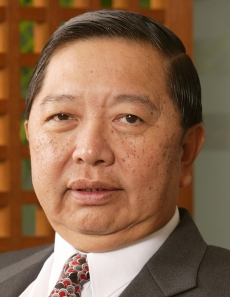 25 (19) Tan Soo Nan
25 (19) Tan Soo Nan
Chief Executive
Tote Board, Singapore
An important question for Tan Soo Nan is whether the opening in Singapore of two integrated casino resorts this year with their world class gaming products will eat into the Tote Board’s revenues. An early clue may come from the Singapore government’s budget estimates for financial year 2010.
It calculates that income from duties on betting and sweepstakes (i.e. Tote Board products) will increase by 25% to S$1.75 billion (US$1.29 billion), while income from private lottery duties will fall five percent to S$323 million. Casino gaming duty is itemised separately as ‘betting duty’ and estimated at S$2.07 billion (US$1.53 billion) for the year.
Singapore’s Tote Board was set up in 1988 and holds the legal right to operate horse racing and totalisator (pari-mutuel) betting operations through its agent and proprietary organisation, the Singapore Turf Club. Tote Board also runs Singapore’s popular 4D lotteries drawn at weekends, along with Singapore Sweep and football betting through its agent and wholly-owned subsidiary, Singapore Pools (Private) Limited. The latter was acquired by Tote Board in 2004.
Tote Board manages the operational surplus generated from the operations of Singapore Turf Club and Singapore Pools to fund Singapore community projects. One of those projects is a public awareness campaign on problem gambling.
The government’s budget estimates for 2010 imply that Singaporeans and Singapore residents who bet on horse racing and the 4D lottery are a discrete group from those gambling in the integrated resorts. That suggests the government’s primary motive for imposing the S$100 per day or S$2,000 per year casino entry fee on locals is to deter middle class players from overindulging a casino gambling habit, rather than to prevent cannibalisation of the Tote Board’s revenue.
A longer term challenge for Tote Board could be maintaining the popular appeal of its core horse racing product. There’s certainly a perception among some gaming analysts that horse racing in general is struggling to attract to young people and is in some kind of long term decline across the Asia Pacific region. But as the experience of the Hong Kong Jockey Club also shows, traditional totes that retain political support have the opportunity to diversify into other betting products with great contemporary appeal.
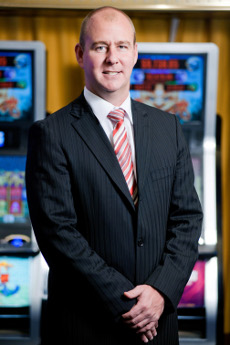 26 (-) David Punter
26 (-) David Punter
General Manager Asia Pacific
Aristocrat Technologies
David Punter was appointed in December to the key role of General Manager Asia Pacific for Aristocrat Technologies, the dominant supplier of slot machine technology in the regional market. In his new role, he has the vital task of developing strategies to ensure Aristocrat stays market leader through sustainable growth.
His early experience in Australia of gaming floor management prior to joining Aristocrat means he has valuable insight into the industry from an operator’s perspective.
One key strategy Mr Punter must execute in his new role is to deliver a greater quantity of products to Asia Pacific markets by customising the extensive library of games Aristocrat has developed in the United States. He stresses, however, that doesn’t mean taking the US product and simply dropping it in to the regional markets.
Under his regional leadership, Aristocrat is continuing and developing a policy of listening very carefully to operators and players and giving them what they want. A key plank of that policy included a series of seminars for operators held at G2E Asia in Macau this June.
The development of FA FA FA, Aristocrat’s highly successful Asian link slot product, several years ago was a direct result of close consultation with operators. Mr Punter says the value of this strategy in maintaining market leadership was proven by the number of rival suppliers that followed Aristocrat in releasing Asian link products.
Successful leadership involves appropriate policy innovation as well as execution of proven policies. To that end, Mr Punter will be looking to add value to the broad principles set down last year by Aristocrat Leisure’s incoming Chief Executive Officer and Managing Director, Jamie Odell. Those principals are: for Aristocrat to be player led and technology driven; to have the best games and systems; to be in the right markets and right segments; and to have world-class organisation.
“Our staff work very closely with the operators to get to know their business. We like to celebrate our mutual success with our clients and we get excited when a new product is well accepted in a casino and performs well,” Mr Punter told Inside Asian Gaming recently.
After graduating from university in Newcastle, New South Wales, with a Bachelor’s Degree in Commerce majoring in marketing, Mr Punter worked in the hotel industry, including gaming room management—at the time when slot machine gaming first came into the hotel industry in that state.
Realising more gaming industry opportunities would be available in nearby Sydney, Mr Punter applied for and was accepted on Aristocrat’s sales cadet programme. About a year into that two-year programme, he was appointed marketing manager for the whole of New South Wales—a major market in Australia with more than 100,000 machines mainly in pubs and clubs. Mr Punter was in that post for three years, and then moved into a sales role in metropolitan Sydney working with some large clubs and hotel groups. He then worked his way up to become Marketing Director, Asia Pacific, for Aristocrat Technologies Australia before being promoted to his current post.
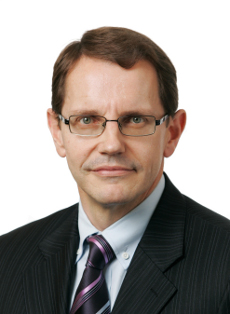 27 (-) Andrew MacDonald
27 (-) Andrew MacDonald
Executive Vice-President, Casino
Marina Bay Sands Pte Ltd
When presented with what he described as a “once-in-a-lifetime opportunity” to run gaming operations at what looks likely to become one of the world’s highest grossing casinos, Andrew MacDonald felt compelled to leave his post as co-head of gaming at Australian investment bank Macquarie Capital in New York and move to Singapore to join Marina Bay Sands in December, 2009.
Singapore’s nascent casino sector is off to a flying start. According to the Wall Street Journal, if the casino gaming revenue figures reported by Singapore’s two integrated resort (IR) operators until the end of the second quarter are annualised, the city-state is on track to have a US$4 billion casino market this year. That easily exceeds analysts’ initial forecasts of around US$3 billion.
With both IRs yet to fully open their planned amenities—including the shopping mall at MBS and the Universal Studios theme park at Resorts World Sentosa (RWS)—the number of visitors to the IRs (and hence casino revenue) is set to increase further over the coming months. Casino capacity at both properties is also still ramping up.
Investment banks CLSA Asia-Pacific Markets and Goldman Sachs both estimate Singapore casino revenues will grow to around US$5 billion in 2011. Although Macau casino revenue is forecast to be around five times greater in the corresponding period, the proceeds in Macau will be split among six operators over 33 properties (with further new properties slated to open over the next few years), while the Singapore government has vowed not to issue any further casino licenses until at least 2015.
The prevailing consensus among analysts is that MBS will emerge as Singapore’s gaming market share leader, with its high-end retail and dining offerings and prime downtown location more likely to appeal to high rollers than the more family-friendly proposition offered by RWS, situated on the resort island of Sentosa.
For now, the RWS casino appears to be holding on to the lead in terms of daily win. It’s early days yet, however, and RWS had a two-month head start on MBS—the former opened its casino on 14th February 2010, while the latter was still experiencing teething troubles after its partial 27th April 2010 opening. MBS is also still acquainting itself with the Singapore market, while RWS benefits from long-standing relationships with local high rollers established by its parent company, Genting, which operates the monopoly casino in neighbouring Malaysia.
If the recent Macau experience is any guide, Asian high rollers can be fickle, with customer loyalty shifting to casinos offering better value and service. The coming months will be a test of Mr MacDonald’s accumulated knowledge and experience in the strategic planning, marketing, development and operation of casinos, as he works to establish MBS as Singapore’s casino market leader.
At MBS, Mr MacDonald is responsible for both the casino’s operations and international marketing teams, with emphasis on the running of the Paiza Club for premium players. As the property hits its stride under Mr MacDonald’s leadership, it is conceivable that it could become Asia’s—and the world’s—top casino earner. That’s especially if profitability, rather than revenue, is the measure, since Singapore casinos are faced with significantly lower tax on gross gaming revenue and do not pay hefty commissions to junket operators. While junkets continue to supply the bulk of Macau’s casino revenue by controlling the flow of mainland Chinese VIPs, they have been effectively barred from Singapore by the stringent probity requirements of the Casino Regulatory Authority (CRA).
Mr MacDonald has over three decades of gaming industry experience, from humble beginnings in 1978 as a dealer at Australia’s first casino in Tasmania, Australia to assuming the role of Executive Vice President – Gaming at Genting in 2007. In the intervening period, he held key positions with the Adelaide Casino, Jupiters Casino and with the Packer organization – where he worked directly with James and Kerry Packer. Mr MacDonald has also worked as a regulator in both Queensland and New South Wales in Australia. This will no doubt hold him in good stead in his dealings with Singapore’s CRA.
Recognised as a leading strategist in casino management and utilisation as well as being an accomplished mathematician, he has written numerous articles on the gaming industry. He also founded the website, Urbino. net, which features columns from leading gaming consultants and industry experts.
For the past 10 years he was also co-moderator of the annual Executive Development Program conducted by the University of Nevada – Reno. This intense nine day program is widely acknowledged as the premier educational program for mid and senior level casino executives globally which has led MacDonald to be known as an important educator and mentor in his field.
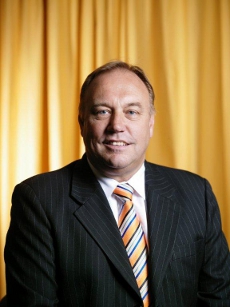 28 (-) Ken Jolly
28 (-) Ken Jolly
Senior Gaming Executive and Consultant
After seven years based out of Macau, covering the largest gaming market by revenue in the world, and with a wealth of previous international market experience behind him, Ken Jolly can fairly lay claim to the title of gaming expert.
He is currently interim General Manager in Asia Pacific for Las Vegas-based gaming equipment supplier Shuffle Master. His focus there is to build further the company’s sales in the region. His enthusiasm for gaming, his contacts and in-depth knowledge of the region’s markets and operators have proven to be an invaluable resource over the course of his career.
That career started more than 32 years ago in New South Wales, Australia. It has covered technical, sales, fiscal control and senior management roles. During the past 17 years his international postings have included acting as a general manager in New Zealand, as a vice president of sales, service and marketing in The Americas (North America, South America and Canada), a general manager of sales and marketing in Europe and as a general manager in Asia Pacific.
Mr Jolly has also served as the executive vice president and general manager of a global Japanese gaming manufacturer with responsibility for Australia, Asia, Europe and Africa.
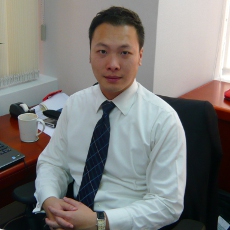 29 (-) Lam Iao
29 (-) Lam Iao
Founder & CEO
Laxino Technology Ltd
Macau is seriously lacking in career opportunities outside the casinos. A major factor behind Lam Iao’s decision to establish Laxino Technology Ltd in June of 2008 was a desire to enable aspiring local software developers to pursue their vocation in his hometown.
Mr Iao himself got his start in IT overseas. After graduating from the University of Texas with a masters degree in computer science and mathematics, he worked on both the equipment supplier and casino operator sides of the gaming industry, first in the US for leading slot machine manufacturer Atronic, then returning to Macau to work at Wynn Resorts and MGM Macau. He has also shared his knowledge in both IT and gaming management as a lecturer at the University of Texas and the University of Macau.
At Laxino, Mr Iao has assembled a world-class team of IT professionals with the requisite gaming expertise to pursue the company’s mandate to provide innovative technological and multimedia entertainment solutions designed to boost the operations of online and land-based casinos.
Laxino offers full technical support for online game operators: software development and customisation, hardware setup, infrastructure design and system integration. The company also provides IT services to land-based operators, and serves as a slot machine distributor and business operations consultancy.
The company’s fast-growing game development division has produced a variety of peer-to-peer and e-games, including online slots, blackjack, video poker and Texas Hold ‘em, as well as a range of ‘mini games’ such as Fa Fa Fa, Fish-Prawn Crab and Lucky Dice. Further games are in the works on Laxino’s business roadmap.
Recently, Laxino also implemented the entire IT infrastructure for a newly-opened five-star hotel and casino in Macau, including establishing the property’s internal IT department, installing an integrated casino management system and property management system and offering advice on how to streamline the property’s business operational processes to match local regulatory requirements.
Laxino has partnered with a Korea-based slot machine manufacturer, and provides content for the games, including graphics and mathematics, as well as obtaining jurisdictional approvals prior to sales. Laxino is the only company in Asia that supplies slot manufacturers GLI approved content.
Mr Iao observes that because most other gaming software development companies active in Asia are based in Europe, Laxino is well positioned to offer Asian customers more responsive service and support, and has a unique sensitivity to local tastes and needs.
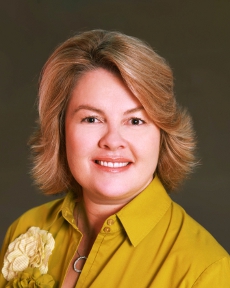 30 (34) Cath Burns
30 (34) Cath Burns
Managing Director and Vice President Asia-Pacific
Bally Technologies
Bally’s Cath Burns has had a busy and successful 12 months. She led the growth of the company in the competitive market for casino-management systems in Macau, as well as masterminding Bally’s re-launch in the complex and carefully regulated Australia and New Zealand markets.
In January, Bally announced a deal with Macau casino operator Galaxy Entertainment Group to provide comprehensive table, slot, and casinomanagement systems across its StarWorld Hotel & Casino and Galaxy Macau properties. StarWorld Hotel & Casino, Galaxy’s flagship property on the Macau peninsula, was the first casino in the Asia-Pacific region to use Bally’s iVIEW Display Manager (DM)™ and Bally Business Intelligence™ solutions.
Bally also has a strategic agreement to roll out its gaming management products across several Macau gaming properties operated by SJM, Dr Stanley Ho’s casino operating business. The products include: Bally Table Management Systems™ (TMS), a suite of technologies for automated table tracking; Bally Casino MarketPlace™ (CMP) casino management software; and Bally Slot Data System® (SDS) for slot floor monitoring. Bally installed TMS, CMP, and SDS at the SJM-licensed L’Arc when it opened in September last year and at SJM’s Casino Oceanus at the time of its December launch. In addition, Bally went live with the 40-year old Casino Lisboa’s first table-management system earlier this year.
Ms Burns is widely considered to be one of the rising stars of Asian gaming, recognised for her leadership and performance in building Bally’s market share in slots and systems in Macau from what amounted to a standing start.
She has also shown another key attribute of quality leadership—the ability to create a strong local team capable of executing her plans and developing the regional business via their individual insights and initiatives. That has allowed her to play a key role in the company’s launch in Australia and New Zealand, knowing that the core business in the rest of the region is fully supported.
“Re-entry into the Australia market is probably the single most important new plan for us to execute over the next 12 to 18 months,” Ms Burns told Inside Asian Gaming last year.
Ms Burns has also shown another important leadership quality—focus. “Australia, being the largest [slot] gaming market in Asia-Pacific, is an entry that we will get right,” she told IAG.
“It’s not a question of going in and putting a toe in the water. Australia is a market that must have true commitment from a company to be successful, and we have that commitment. We’ll be entering the market with a strong foundation for success. We have great respect for the Australian gaming market and want to build our business the right way. Our focus on building the business the right way is the same focus that we have had in building Macau and the rest of Asia.”
In August, Bally Technologies announced two key appointments to boost the management team for Bally’s Australia and New Zealand business. Michael McNee was named Managing Director of Bally Australia, with Ron Jeffrey taking the role of Sales Manager for Bally Australia. Both will be based at Bally’s new regional office in Sydney, New South Wales.























